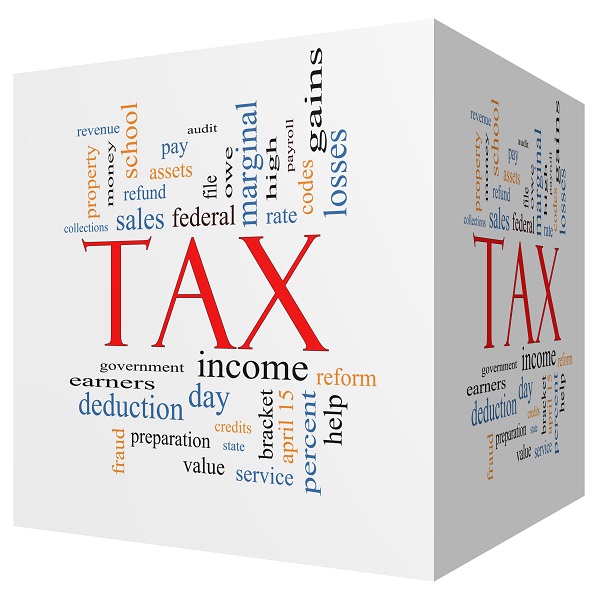CLE Presentation by Shamsey Oloko
AN ANALYSIS OF THE TAX CUTS AND JOBS ACT
January 2018
AN ANALYSIS OF THE TAX CUTS AND JOBS ACT
On December 22, 2017, after much, well-publicized legislative skirmishes, President Donald Trump signed into law H.R. 1, otherwise known as the “Tax Cuts and Jobs Act.” Provisions affecting individuals are generally effective beginning December 31, 2017 and expire on December 31, 2025. Most business-related provisions are permanent and are effective beginning December 31, 2017.
This new law is, by all accounts, the most significant revisions to the U.S. tax code since 1986, affecting almost all individual and business taxpayers. Our firm’s general assessment of the new law will therefore be a two-part series: this first part covers changes to individual taxpayers, and the second part will cover changes to business taxpayers.
State Property & Sales Tax Climate: Connecticut
The Tax Foundation recently conducted a a study of the tax climates in each of the fifty states and then rated and ranked them based on five categories: corporate tax, individual income, sales tax, unemployment insurance tax, and property tax. The Tax Foundation’s rankings are designed to show how well state tax systems are structured, rather than simply rank the states by the amount of taxes assessed.
Connecticut finished 43rd in overall tax climate and it ranked in the individual tax categories as follows: 32 (corporate tax), 37 (individual income tax), 27 (sales tax), 21 (unemployment insurance tax), and 49 (property tax). Connecticut was also ranked 43rd in each of the three preceding years.
State Property & Sales Tax Climate: New Jersey
The Tax Foundation recently conducted a study of the tax climates in each of the fifty states and then rated and ranked them based on five categories: corporate tax, individual income, sales tax, unemployment insurance tax, and property tax. The Tax Foundation’s rankings are designed to show how well state tax systems are structured, rather than simply rank the states by the amount of taxes assessed.
New Jersey finished dead last in overall tax climate and it ranked in the individual tax categories as follows: 42 (corporate tax), 48 (individual income tax), 45 (sales tax), 25 (unemployment insurance tax), and 50 (property tax).
Which State Has The Best Tax Climate?
The Tax Foundation is an independent tax policy nonprofit organization that has studied and researched tax policy since 1937. It reviewed the 2017 tax climates in each of the fifty states and ranked them overall based on five categories: corporate tax, individual income, sales tax, unemployment insurance tax, and property tax. In the near future, we will address the state tax climates of New York, New Jersey, and Connecticut.
The purpose of the Tax Foundation State Business Tax Climate Index is to enable business owners, policymakers, and taxpayers evaluate how their states’ tax systems compare to others. The Tax Foundation’s rankings are designed to show how well state tax systems are structured, rather than simply rank the states by the amount of taxes assessed.
Tax Law Changes In The New York State Budget Act, Part 3
In early spring of 2016, Governor Cuomo of New York signed into law the 2016-2017 Budget Act (S6409C/A9009C) (“Budget Act” or “Act”). This legislation includes amendments to the New York tax reform legislation contained in the 2014-2015 New York State Budget and the New York City tax reform legislation contained in the 2015-2016 New York State Budget. It also contains provisions which affect certain state credits and incentives, and state sales tax provisions. This is the third part of a three-part series summarizing some of the more significant provisions of the Budget Act.
Interest or bad debt deductions
U.S Supreme Court Denies Certiorari In Sprint Nextel Corp. v. New York, U.S.
In Sprint Nextel Corp. v. New York, U.S., No. 15-1041, cert. denied May 31, 2016, the U.S. Supreme Court denied Sprint’s petition for review of a closely watched tax case from New York. Sprint petitioned the SCOTUS for certiorari in February, asking it to overturn the New York decision that allowed the state to proceed with a False Claims Act case against the company for its failure to collect and pay sales taxes on flat-rate calling plans.
Business Owners, Don’t Forget To Make Your Sales Tax Refunds! – Matter of New Cingular Wireless PCS, LLC
This case, Matter of New Cingular Wireless PCS LLC, DTA No. 825318 (N.Y.S. Tax App. Trib., Feb. 16, 2016), presents a fact pattern that reflects the cost to a business owner for failing to make sales tax refunds. Here, New Cingular Wireless, now known as AT&T Mobility (“AT&TM”), improperly collected and remitted sales tax on charges for Internet access. It was then eligible for a refund from the State of New York but applied for such without first actually refunding the over-collected amounts back to customers! Most importantly, it was not entitled to remedy its error resulting in a cost to the company of $100 million.
Some Things To Know About New York State Tax
It’s not news that most people complain about having to pay taxes. New Yorkers seem to especially complain about their state and local tax burden. The Tax Foundation, with a database that currently covers the years 1977-2012, interprets the tax burden of individual taxpayers by measuring what they actually spend in local and state taxes. Its. According to its rankings of states with the highest state and local tax burdens, Americans paid an average rate of 9.9 percent in state and local taxes in 2012. Further, the state with the highest state-local tax burden was New York at 12.7 %. In fact, the top three states – New York, New Jersey and Connecticut – have been ranked as the top three in this category since 2005. Not surprisingly, New York’s tax laws are relatively complex compared to other U.S. states. Here are some things to know about taxes in the Empire State.
What You Need to Know About Deducting State and Local Taxes
Taxpayers that itemize deductions on Schedule A, (and file Form 1040) can deduct the cost of state income taxes on their federal tax return. The ability to deduct the full cost of these taxes has its obvious advantages. Taxpayers may either claim such a deduction from state and local income taxes or state and local sales taxes, but not both. Basically, to be deductible, the tax must be imposed on a taxpayer and must have been paid during the particular tax year. Taxpayers that elect to deduct state and local general sales taxes, may use either their actual expenses or the optional sales tax tables.

